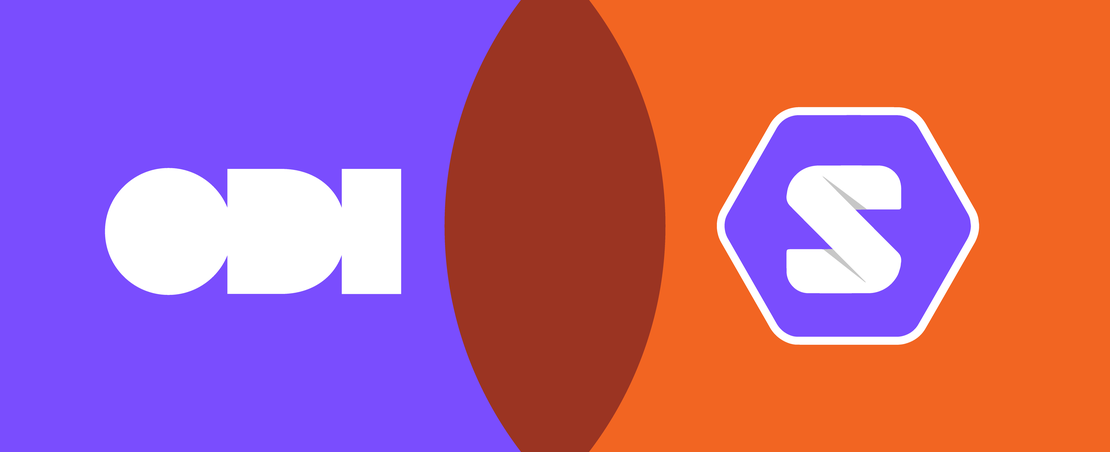
This week at the MyData Conference in Helsinki, we’re sharing the next chapter of Solid - a technology designed to return the web to its original purpose - serving people first.
When Sir Tim Berners-Lee invented the World Wide Web, it was intended to empower individuals, encourage creativity, and facilitate collaboration. Over time, the Web has drifted away from that vision. Today, much of our personal data is stored inside the systems of governments, corporations, and platforms. Health records remain trapped in clinical systems, financial details are restricted to banking apps, and our social connections are mediated by digital platforms.
Solid is designed to change this.
What Solid is
The easiest way to think of Solid is as a personal rucksack (or backpack) for your data. Instead of scattering information across dozens of services, you store it once in your own secure online space. The rucksack has many pockets, and you decide which app, service, or even AI agents can open which pocket, while the rest remain private.
In technical terms, Solid is a file system for the Web. Just as you can save a PDF on your laptop and open it with Adobe Acrobat, Chrome, or another application, Solid lets you store documents, images, and data online and choose which tools can access them. This model enables individuals to maintain control over their data, making it easier for developers to build services that interoperate rather than competing for exclusive control.
From idea to global movement
Solid was developed nearly ten years ago by Sir Tim and his team at MIT in collaboration with academic institutions including the Qatar Computing Research Institute and Oxford University, and has been nurtured by a dedicated global community. In 2017, Tim co-founded Inrupt to accelerate Solid’s development and support its commercial deployment. In 2024, the Open Data Institute (ODI) became Solid’s steward, building on more than a decade of experience in responsible data innovation.
This isn’t just theory. Solid is already being used in the real world:
- In Flanders, Athumi uses Solid to host the data of 6.5 million citizens - enabling the public to control what government data is shared across departments.
- NHS pilots in Greater Manchester have explored how patients can manage access to their medical records while enabling secure collaboration between healthcare providers and family members.
- In the US, Solid is also being used in the construction industry for systems, project and supply chain management.
- Grassroots initiatives such as Code for PDX in Oregon are using Solid to support people at risk of homelessness, enabling caseworkers to share essential documents securely.
Many of these examples are deployed using Inrupt’s technology, while Graphmetrix is utilising Solid in its US construction industry deployment. Together, they show how people-first data infrastructure can underpin both everyday services and ambitious social projects.
The next chapter
With ODI’s stewardship, Solid is moving into its next stage: strengthening its open-source foundations and delivering compelling use cases.
The coming years will see:
- Pilot projects across healthcare, government, education, and community sectors, each showing how people can take back control of their data.
- Training for developers, equipping them to build applications on top of Solid’s infrastructure.
- Opportunities for start-ups and small enterprises to develop services without being locked into proprietary platforms.
- Preparation for an AI-driven future, where Solid ensures that intelligent systems work with your data under your permission, rather than extracting it without your say
Why it matters
Solid is about more than convenience. It’s about agency. When you can control your own data, you can switch services more easily, interact with public services more smoothly, and choose digital tools that work in your interests. For communities and countries, it means developing services that reflect their own values and priorities, rather than depending on global platforms.
As artificial intelligence becomes ever more central to digital life, the question of who controls the underlying data is becoming critical. Solid provides a framework for AI agents to deliver personalised, trusted services while respecting user privacy.
Looking ahead
The ODI’s role is to help shape this next chapter. We’ll convene partners, build apps, support developers, and ensure Solid evolves in ways that serve society as a whole.
As Sir Tim himself has said:
“Solid returns the web to its roots by giving everyone direct control over their own data… We’re not just building better software - we're correcting our global digital infrastructure to encourage collaboration, stimulate creativity, and champion compassion. This is returning us to my original hope for the web.”
That is the vision we’ll be discussing this week in Helsinki - one for a Web of data which works for everyone. Solid is a step towards that future, where control, trust, and creativity return to the heart of our digital lives.
Get started with Solid today - visit solidproject.org to find out more
Come along to my talk and panel at MyData and say “hello”!